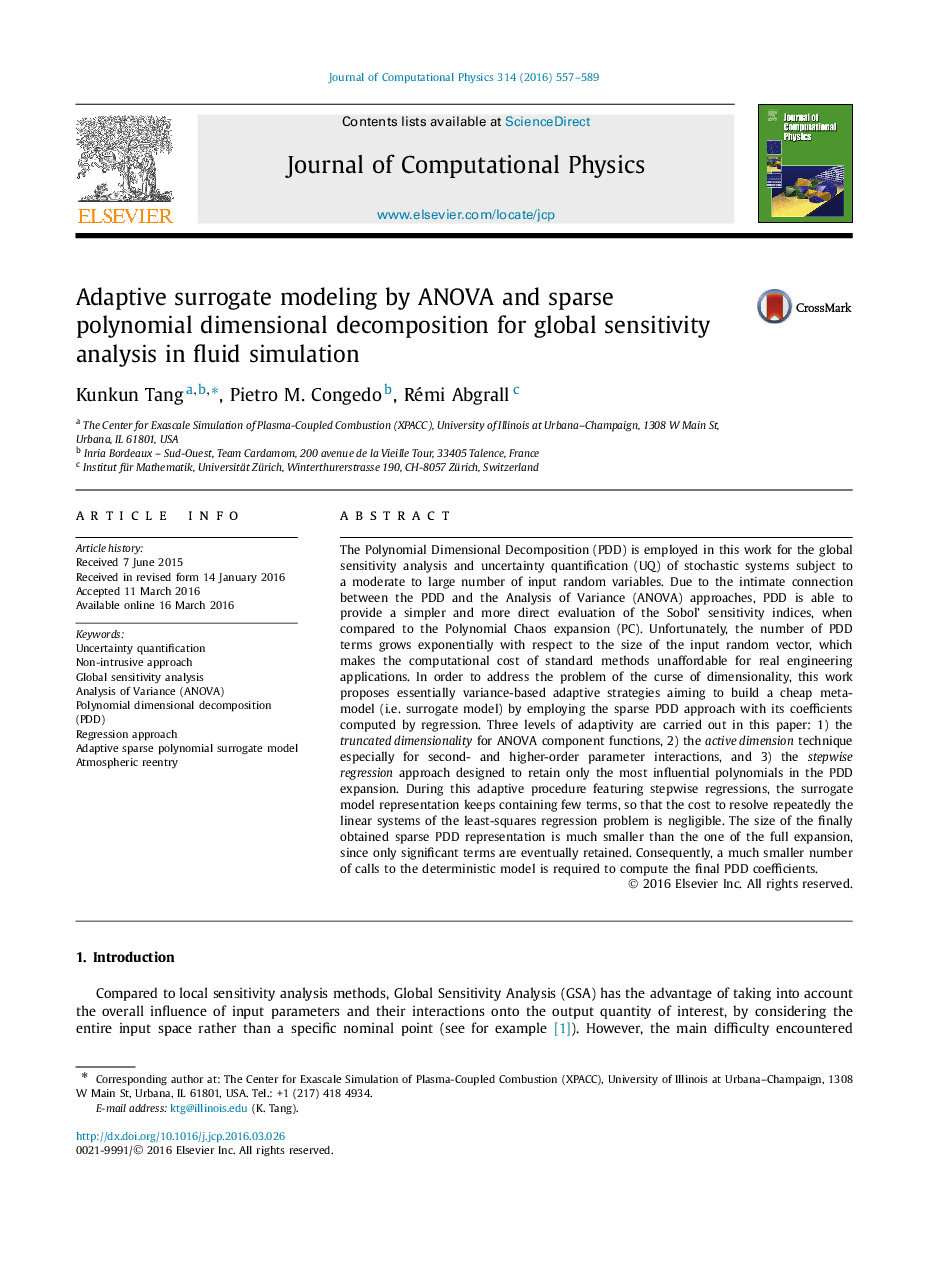| کد مقاله | کد نشریه | سال انتشار | مقاله انگلیسی | نسخه تمام متن |
|---|---|---|---|---|
| 6930343 | 867532 | 2016 | 33 صفحه PDF | دانلود رایگان |
عنوان انگلیسی مقاله ISI
Adaptive surrogate modeling by ANOVA and sparse polynomial dimensional decomposition for global sensitivity analysis in fluid simulation
دانلود مقاله + سفارش ترجمه
دانلود مقاله ISI انگلیسی
رایگان برای ایرانیان
کلمات کلیدی
موضوعات مرتبط
مهندسی و علوم پایه
مهندسی کامپیوتر
نرم افزارهای علوم کامپیوتر
پیش نمایش صفحه اول مقاله

چکیده انگلیسی
The Polynomial Dimensional Decomposition (PDD) is employed in this work for the global sensitivity analysis and uncertainty quantification (UQ) of stochastic systems subject to a moderate to large number of input random variables. Due to the intimate connection between the PDD and the Analysis of Variance (ANOVA) approaches, PDD is able to provide a simpler and more direct evaluation of the Sobol' sensitivity indices, when compared to the Polynomial Chaos expansion (PC). Unfortunately, the number of PDD terms grows exponentially with respect to the size of the input random vector, which makes the computational cost of standard methods unaffordable for real engineering applications. In order to address the problem of the curse of dimensionality, this work proposes essentially variance-based adaptive strategies aiming to build a cheap meta-model (i.e. surrogate model) by employing the sparse PDD approach with its coefficients computed by regression. Three levels of adaptivity are carried out in this paper: 1) the truncated dimensionality for ANOVA component functions, 2) the active dimension technique especially for second- and higher-order parameter interactions, and 3) the stepwise regression approach designed to retain only the most influential polynomials in the PDD expansion. During this adaptive procedure featuring stepwise regressions, the surrogate model representation keeps containing few terms, so that the cost to resolve repeatedly the linear systems of the least-squares regression problem is negligible. The size of the finally obtained sparse PDD representation is much smaller than the one of the full expansion, since only significant terms are eventually retained. Consequently, a much smaller number of calls to the deterministic model is required to compute the final PDD coefficients.
ناشر
Database: Elsevier - ScienceDirect (ساینس دایرکت)
Journal: Journal of Computational Physics - Volume 314, 1 June 2016, Pages 557-589
Journal: Journal of Computational Physics - Volume 314, 1 June 2016, Pages 557-589
نویسندگان
Kunkun Tang, Pietro M. Congedo, Rémi Abgrall,